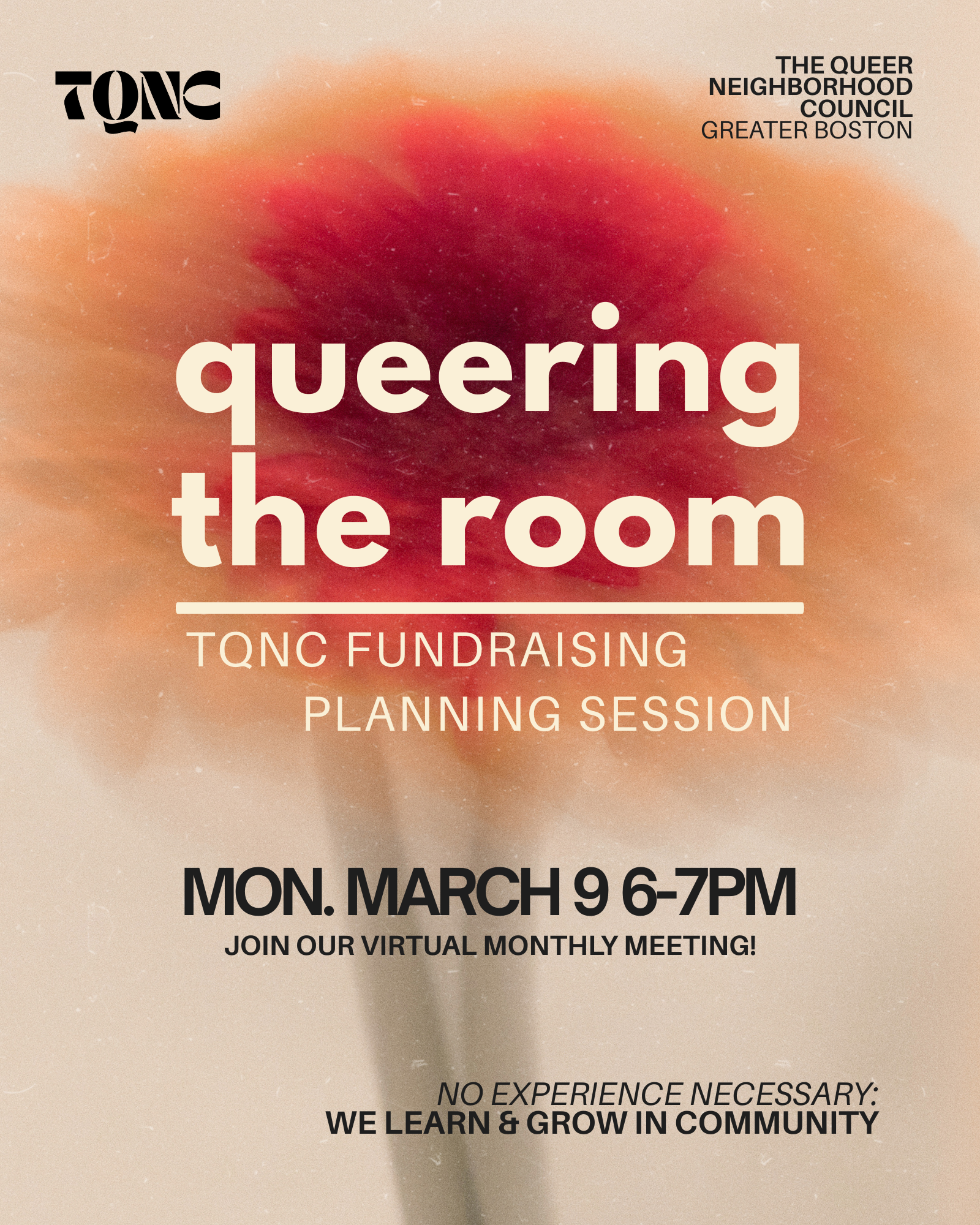Queer Advocacy Group
for Greater Boston’s LGBTQIA+ and ally communities
TQNC
Get Involved & Take Action
Upcoming Civic Engaygement
LGBTQIA+ Community-Led
Advocacy Priorities
for the community, by the community
TQNC’s advocacy priorities were forged and are continually refined based on feedback from hundreds of community members across dozens of in-person advocacy potlucks, virtual working sessions, policy roundtables with elected officials and policy experts, advocacy trainings, and community forums.
Housing is a Queer Issue
Housing is a human right, and Massachusetts can be a safe haven for queer people — but only if queer people can afford to live here.
TQNC ADVOCACY FOCUSES INCLUDE:
Trans Shelter
Right to Counsel when facing eviction
Queer Youth Homelessness
Housing Affordability
Housing Access & Discrimination
Healthcare is a Queer Issue
Healthcare affects everyone, and our communities’ access to life-saving care is under attack, and more mental health resources are desperately needed.
TQNC ADVOCACY FOCUSES INCLUDE:
Queer Youth Mental Health
Queer Adult Mental Health
Anti-Trans Legislation Mental Health Impacts
Access to Gender-Affirming Care
Access to Reproductive Care
Youth Community is a Queer Issue
With rising mental health stressors and schools often not being safe spaces, community connections & support are more vital than ever for our queer youth.
TQNC ADVOCACY FOCUSES INCLUDE:
Dedicated Queer Youth Community Spaces
Queer Youth Community Building Outside Schools
Access to Mental Health Resources
Queer Teen Advisory Programs
Queer-Affirming Sex Ed Programs
Art is a Queer Issue
Art is how we fight back, how we inspire, how we energize, how we organize, how we express, and sometimes even how we make a living.
TQNC ADVOCACY FOCUSES INCLUDE:
Queer Artists Markets & Vending Opportunities
Queer Performance Spaces & Opportunities
Increasing Rehearsal & Studio Spaces
Fostering Queer Joy through Art





